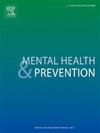Conceptualizing resilience among health workers in the Gaza Strip: a scoping review
IF 2.4
Q2 Medicine
引用次数: 0
Abstract
Background
Resilience is critical for healthcare workers operating under prolonged conflict, enabling adaptation and continuity of care despite adversity. In the Gaza Strip, extreme constraints challenge health systems, yet research on healthcare worker resilience remains limited.
Objective
This study aims to systematically review and synthesize existing peer-reviewed literature on the resilience of healthcare workers in the Gaza Strip. The objective is to identify and synthesize the existing knowledge available on resilience among health workers in this context.
Methods
A scoping review was conducted using PRISMA guidelines and Arksey and O’Malley’s framework. Databases searched included CINAHL, MEDLINE, Embase, PsycInfo, and Scopus. Relevant data were extracted and synthesized to map the scope of resilience-related findings.
Results
The studies analyzed the concept of resilience in included studies. Findings indicate that despite extensive debate on the relationship between resilience and related constructions, there is no consensus on a universal definition of the concept in the context of the Gaza Strip. The culturally and contextually embedded nature of resilience is not explicitly addressed, nor is the complexity of multidimensional interactions or the nature of adversity that shapes resilience.
Conclusion
Healthcare workers in Palestine endure extreme psychological and operational pressures, exacerbated by ongoing conflict and systemic disruptions. Understanding the resilience mechanisms of Palestinian health workers remains limited and is crucial for developing context-specific interventions that enhance their ability to cope and sustain care provision. Future research should refine resilience frameworks to support healthcare workers comprehensively and ensure sustainable healthcare provision under conflict conditions.
加沙地带卫生工作者复原力的概念化:范围审查
复原力对于在长期冲突中工作的卫生保健工作者至关重要,使他们能够在逆境中适应和持续提供护理。在加沙地带,极端的制约因素对卫生系统构成了挑战,但关于卫生工作者抗灾能力的研究仍然有限。目的本研究旨在系统地回顾和综合现有的同行评议的关于加沙地带医护人员复原力的文献。目标是确定和综合在这方面卫生工作者的复原力方面的现有知识。方法采用PRISMA指南和Arksey和O 'Malley框架进行范围审查。检索的数据库包括CINAHL、MEDLINE、Embase、PsycInfo和Scopus。提取并综合了相关数据,以绘制复原力相关发现的范围。结果本研究对纳入研究中的心理弹性概念进行了分析。研究结果表明,尽管对弹性和相关建筑之间的关系进行了广泛的辩论,但在加沙地带的背景下,对这一概念的普遍定义没有达成共识。复原力的文化和背景嵌入性没有得到明确解决,多维互动的复杂性或塑造复原力的逆境性质也没有得到明确解决。结论巴勒斯坦的卫生保健工作者承受着极大的心理和业务压力,持续的冲突和系统性破坏加剧了这种压力。对巴勒斯坦卫生工作者复原力机制的了解仍然有限,这对于制定针对具体情况的干预措施,提高他们应对和维持提供护理的能力至关重要。未来的研究应完善复原力框架,以全面支持医护人员,并确保在冲突条件下提供可持续的医疗服务。
本文章由计算机程序翻译,如有差异,请以英文原文为准。
求助全文
约1分钟内获得全文
求助全文
来源期刊

Mental Health and Prevention
Medicine-Psychiatry and Mental Health
CiteScore
2.10
自引率
0.00%
发文量
22
审稿时长
24 days
 求助内容:
求助内容: 应助结果提醒方式:
应助结果提醒方式:


